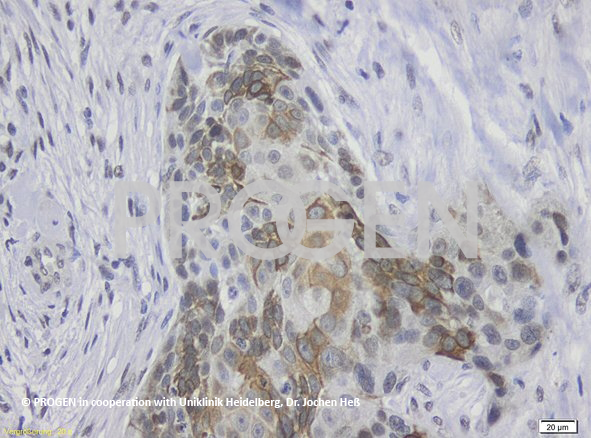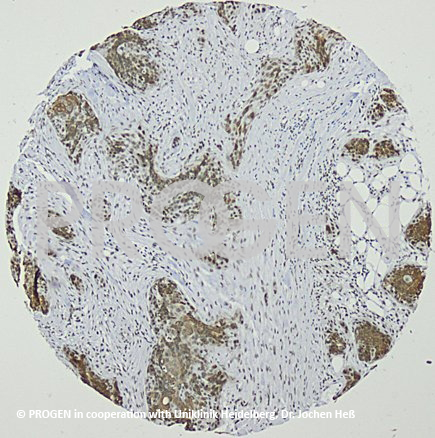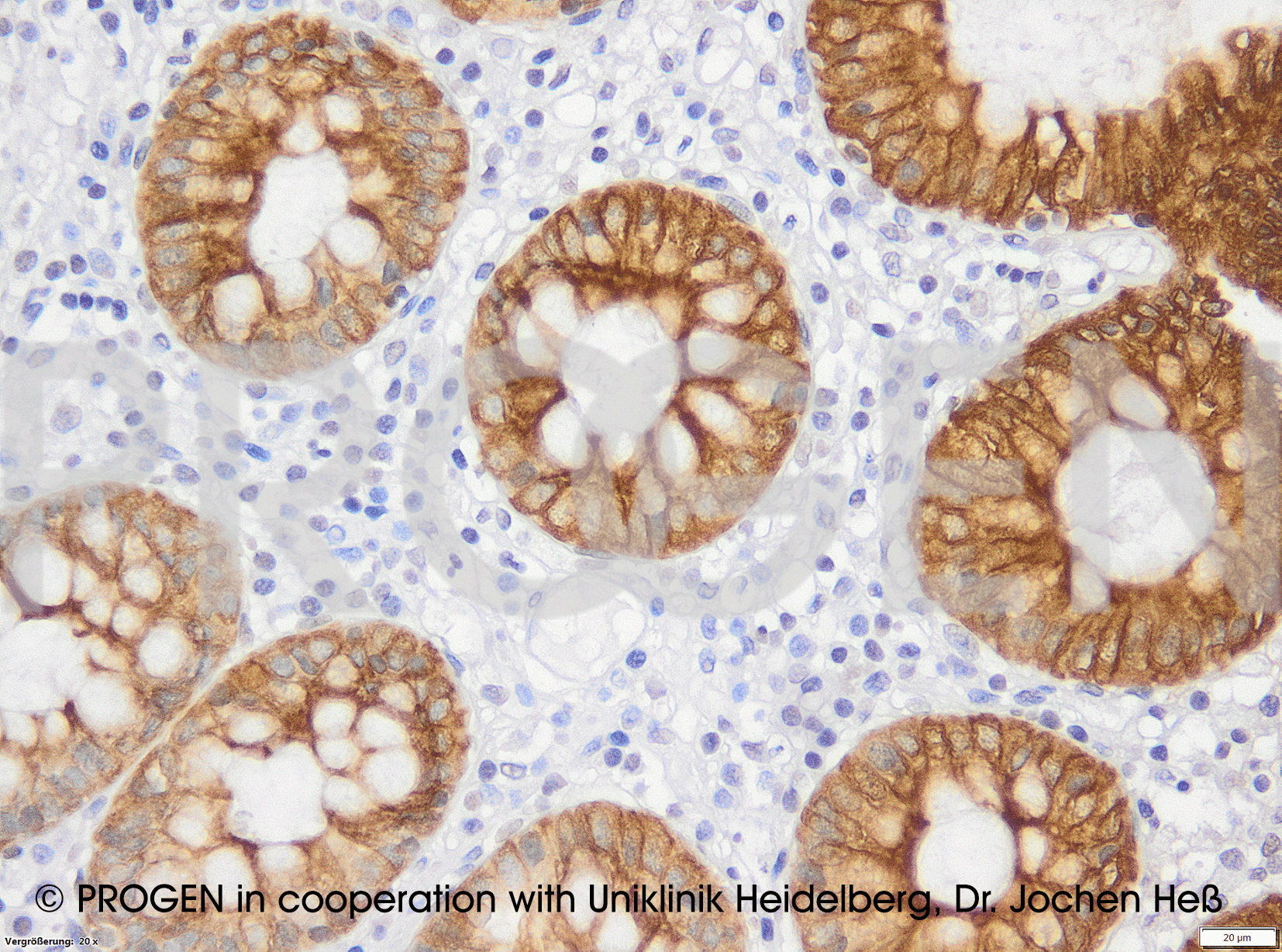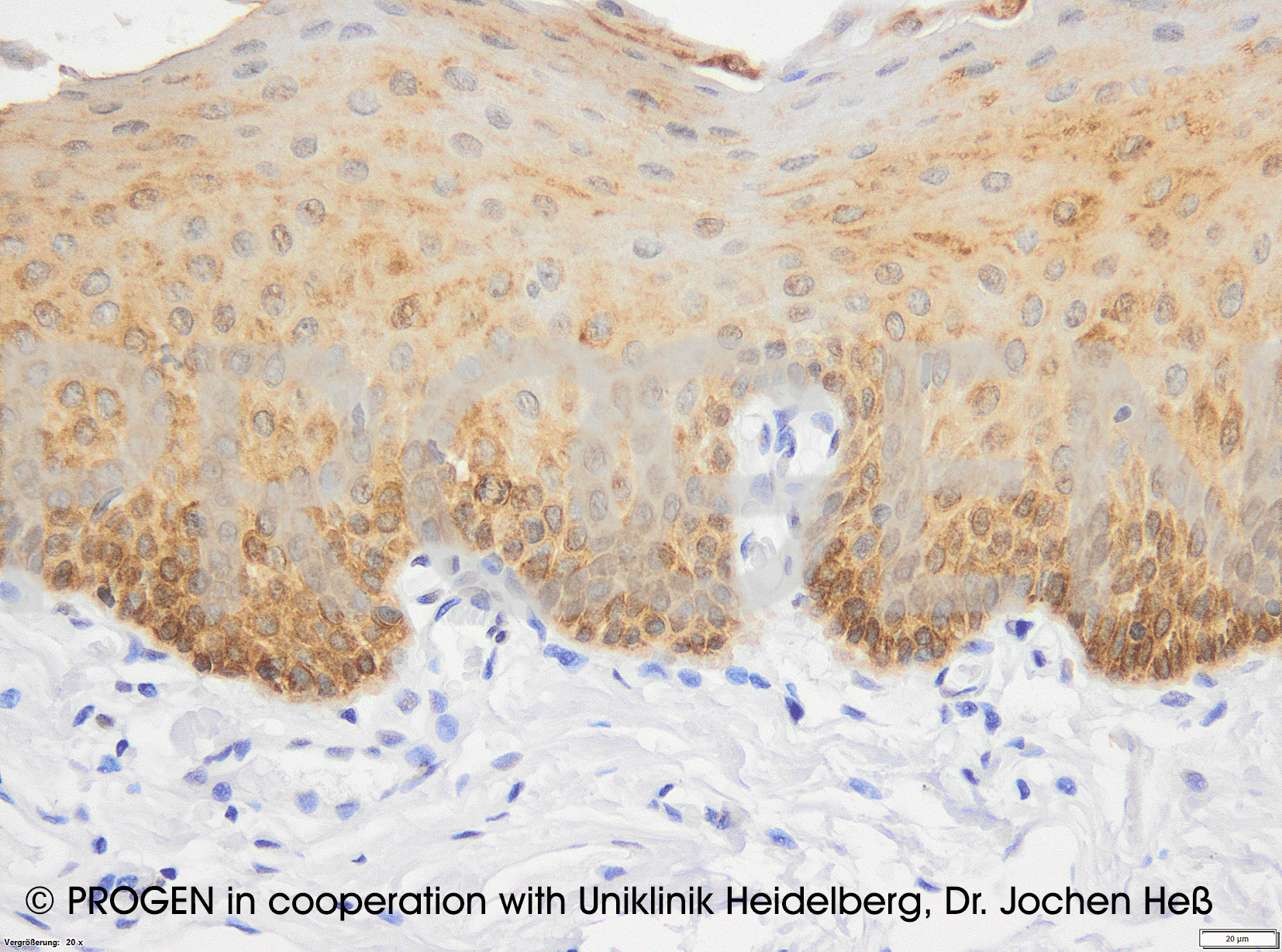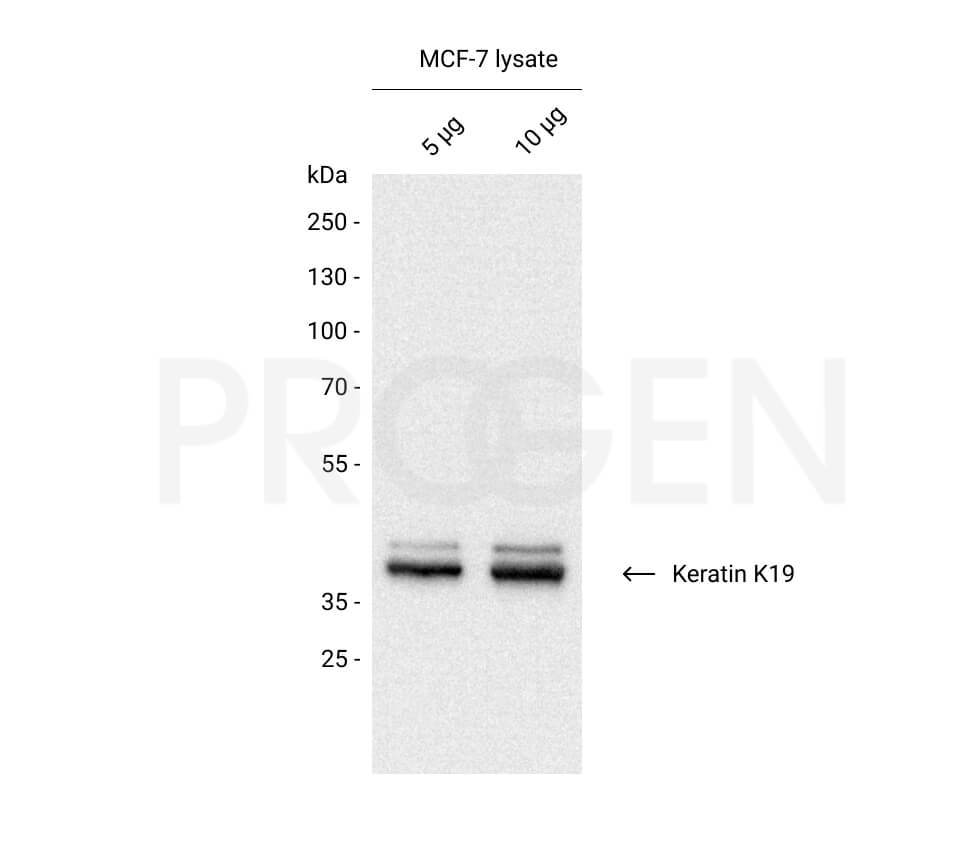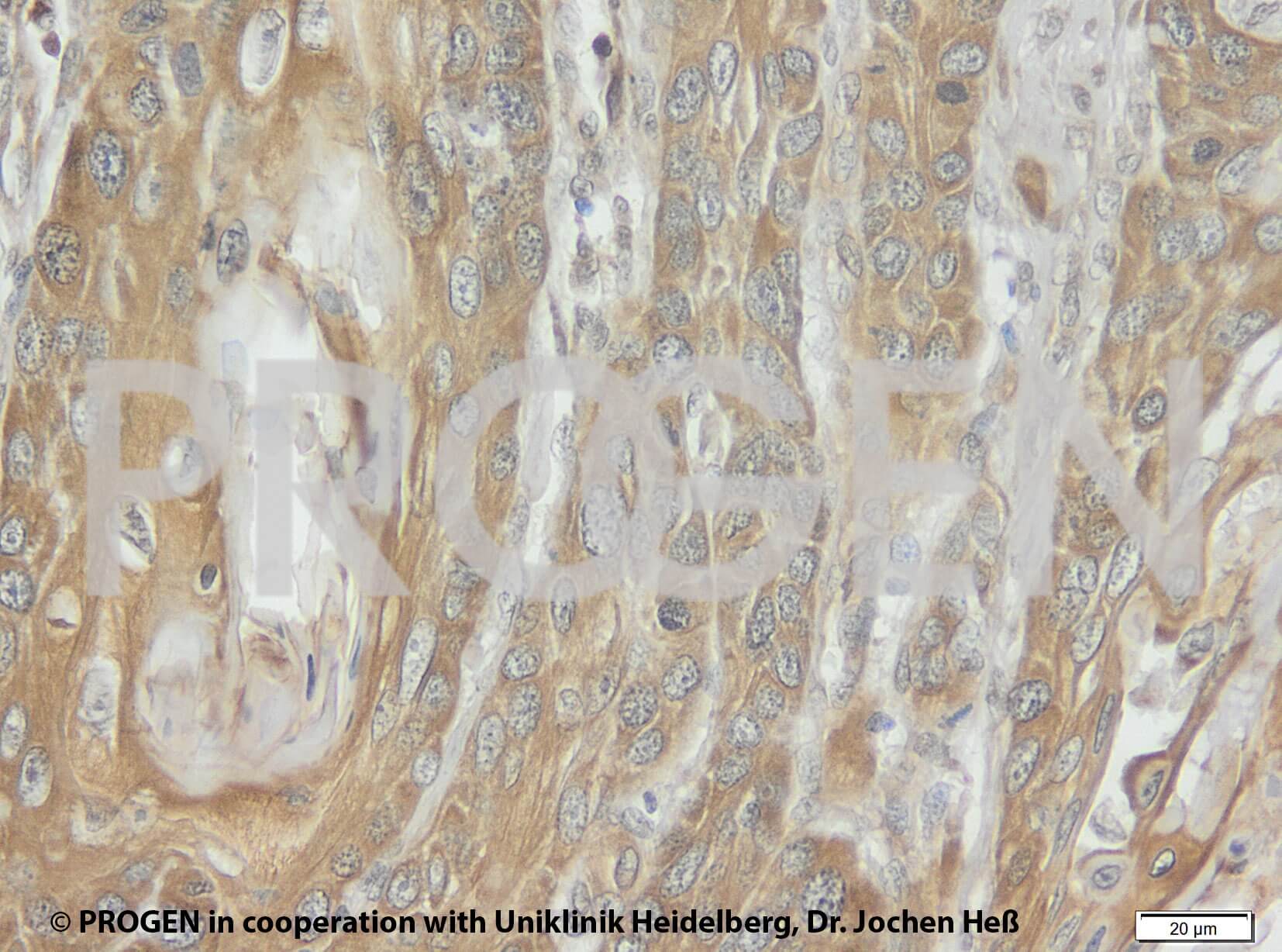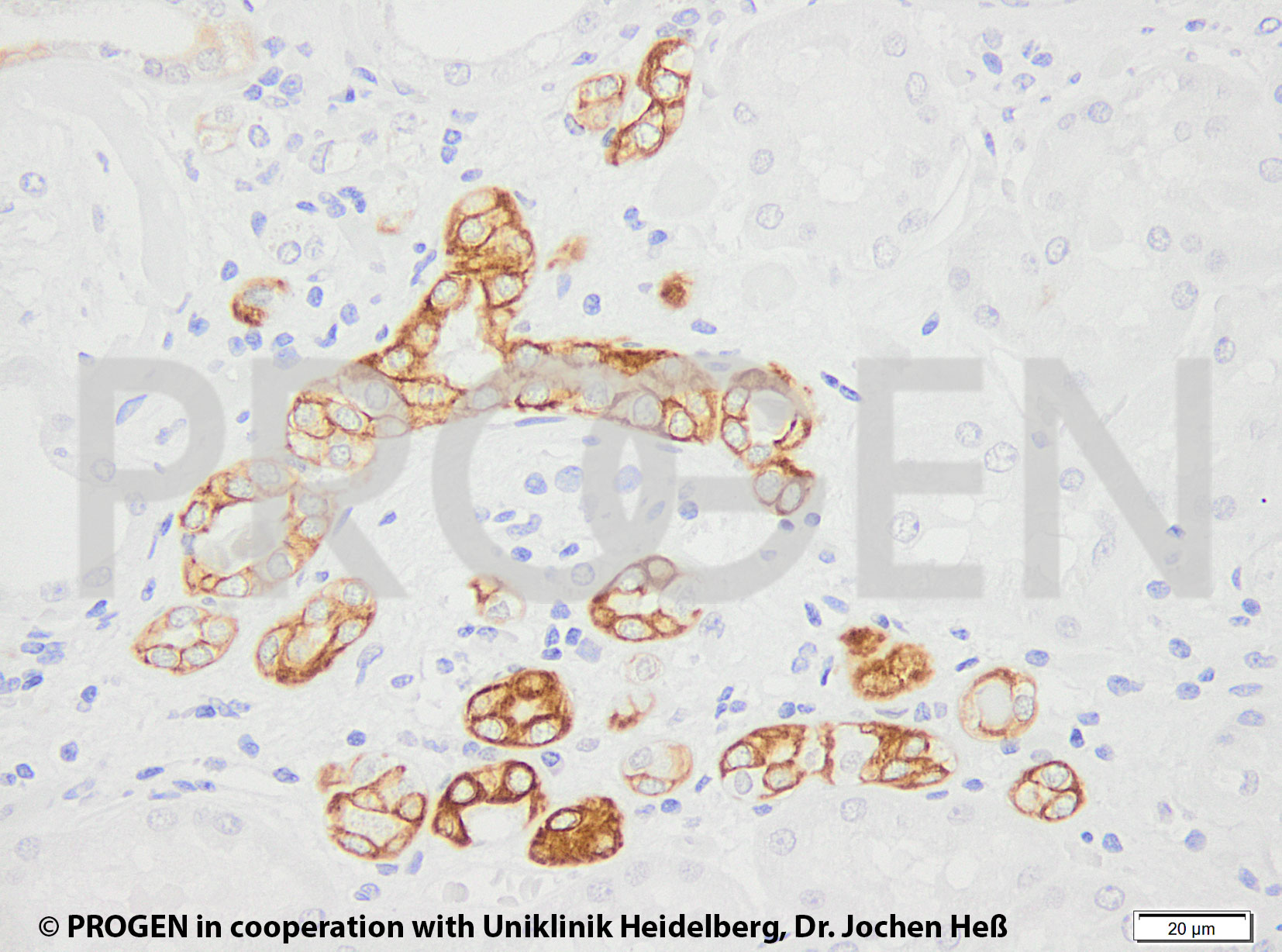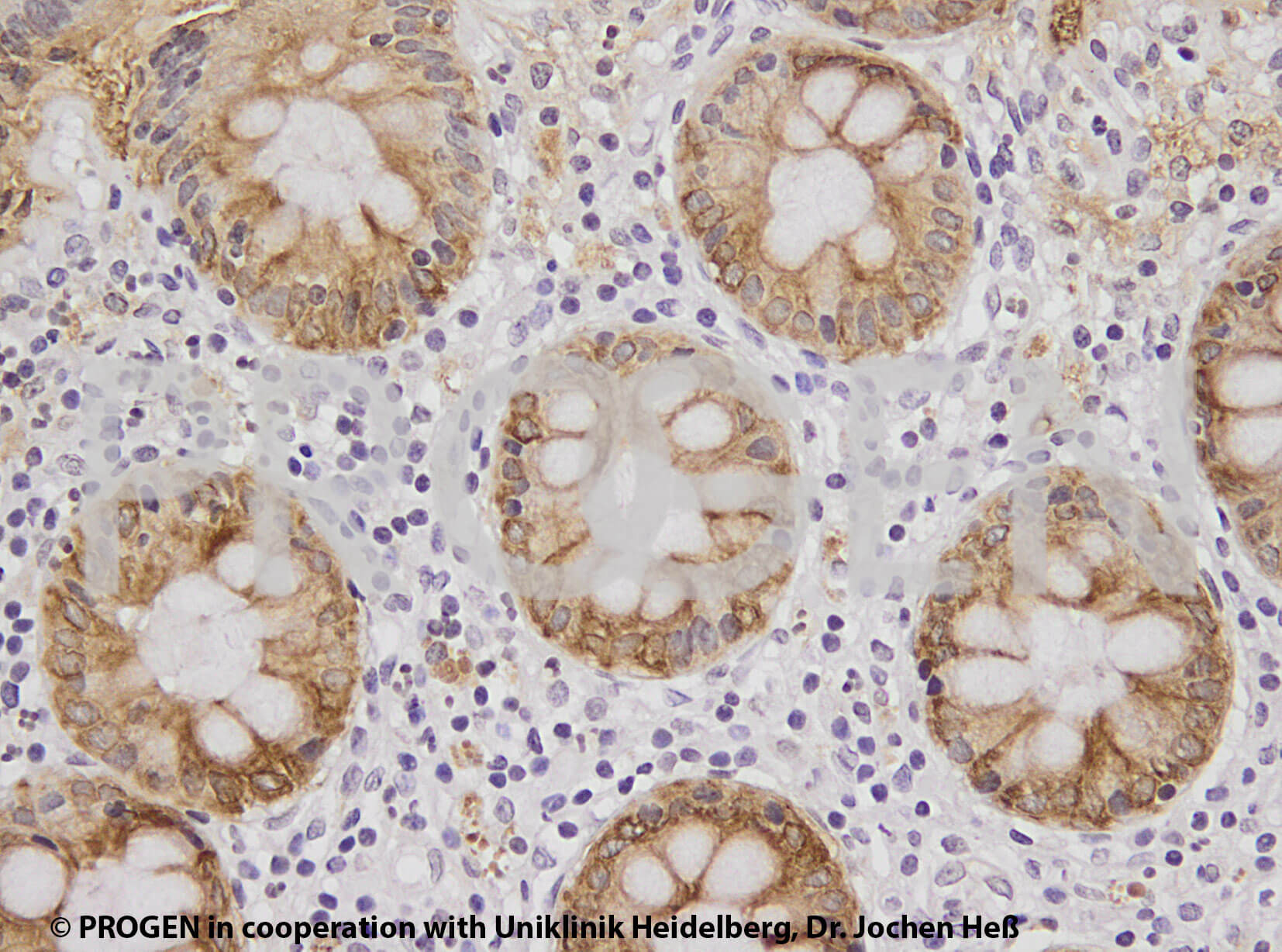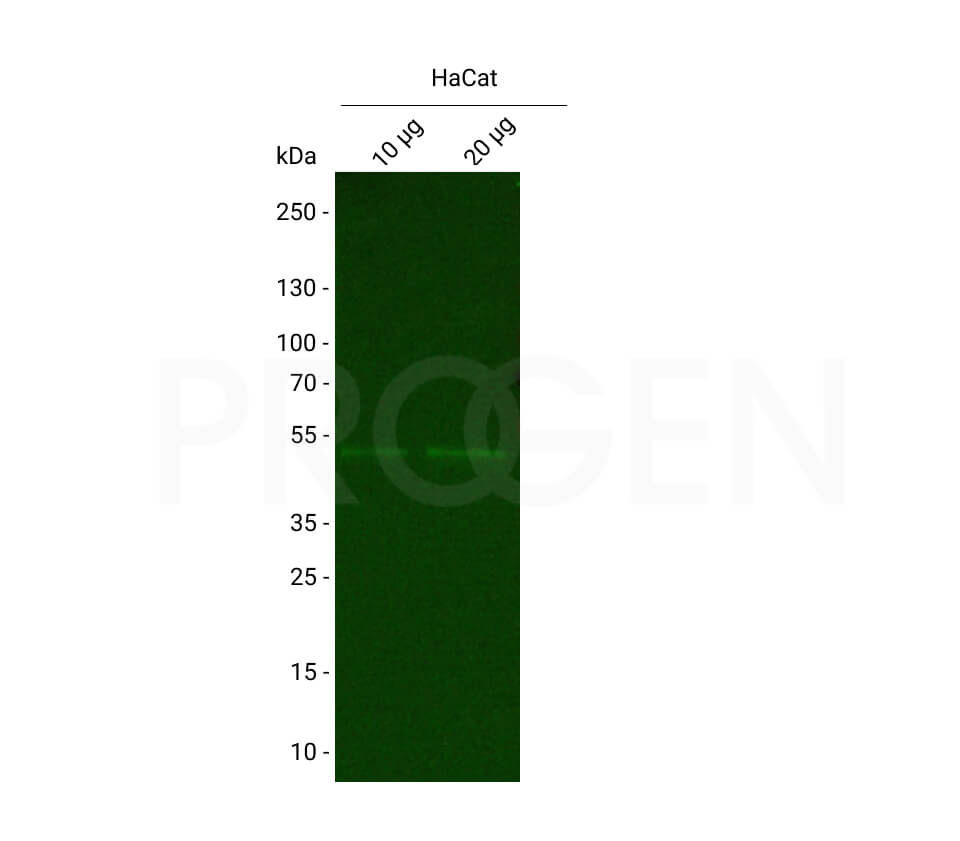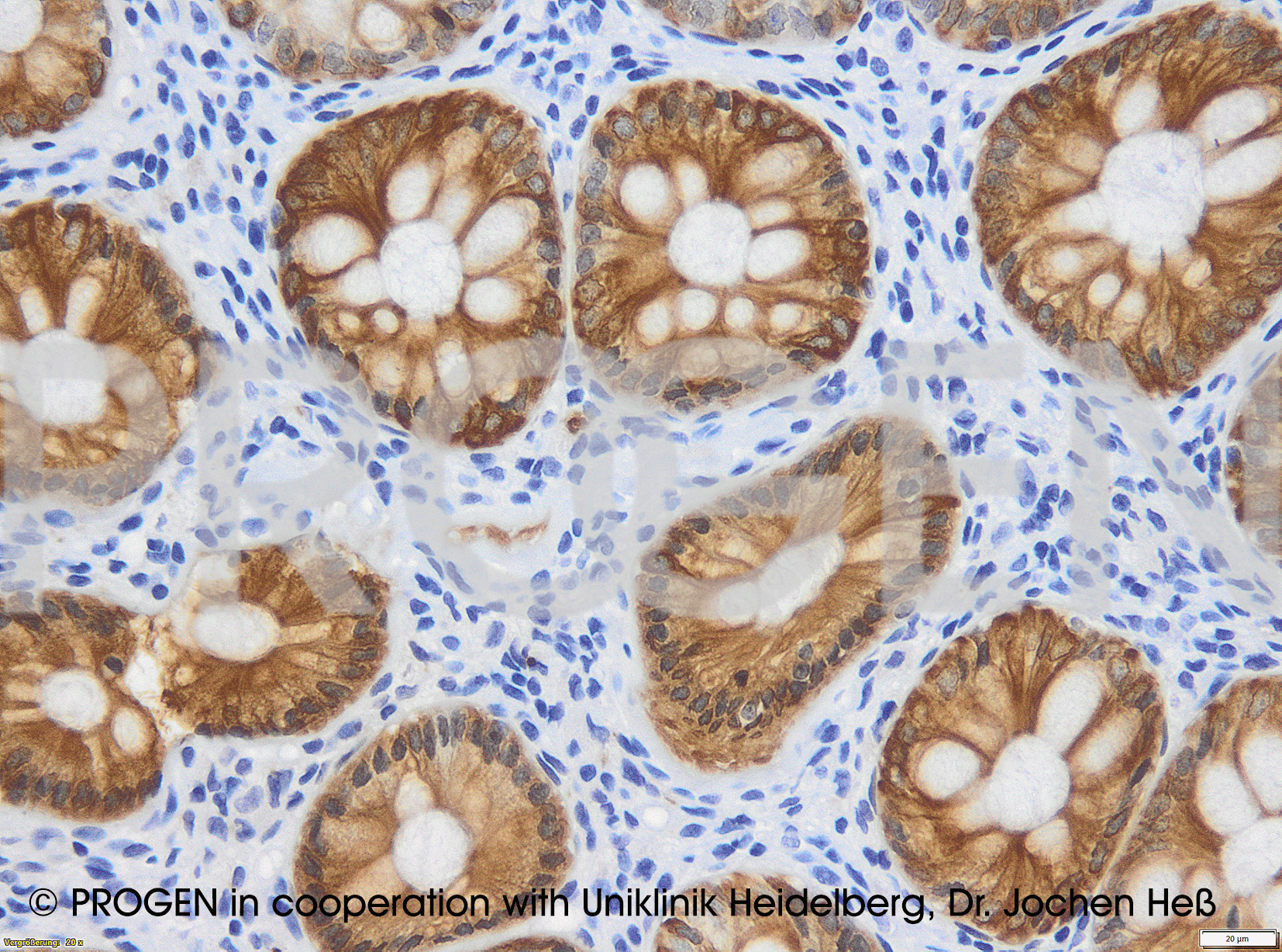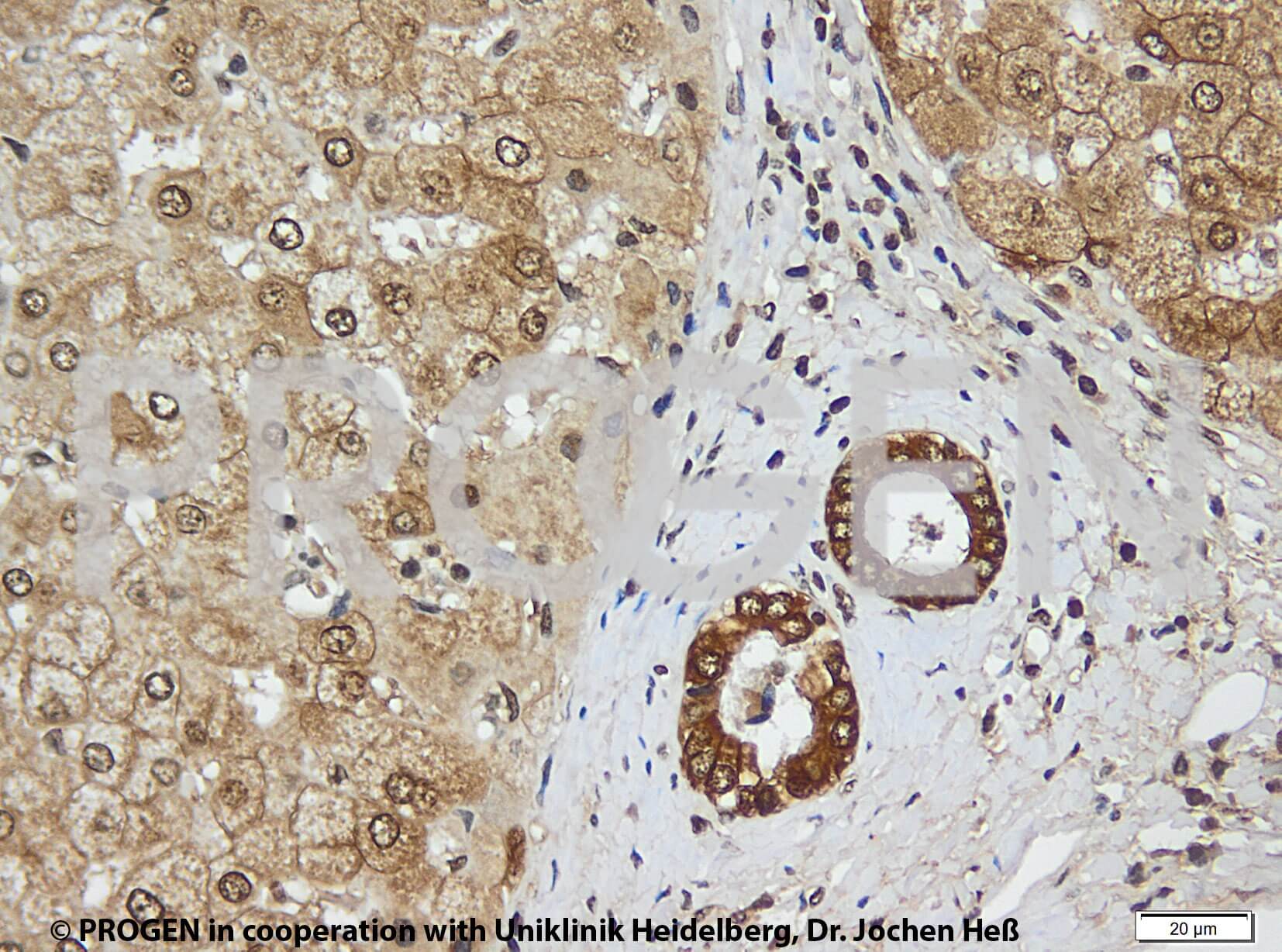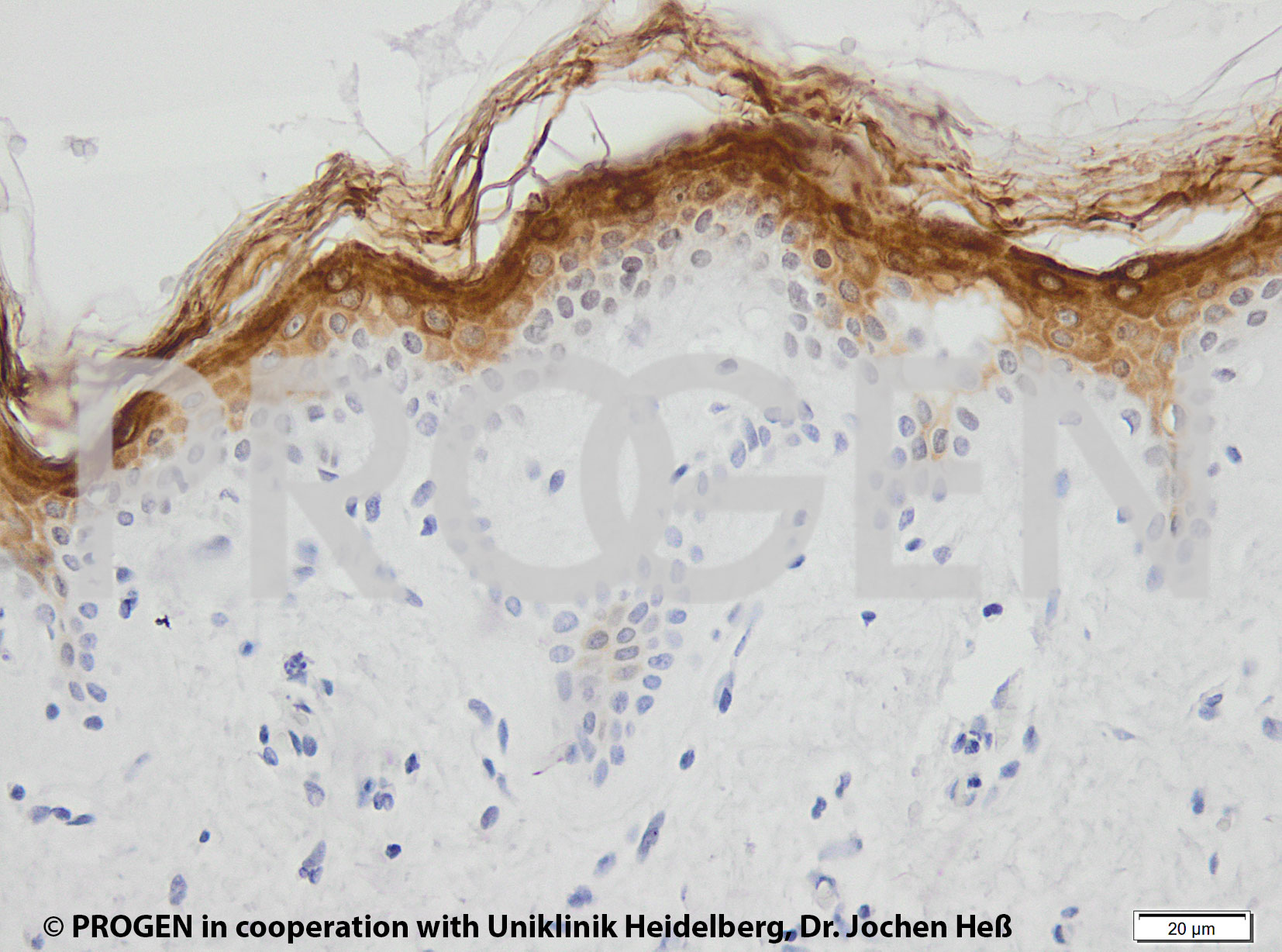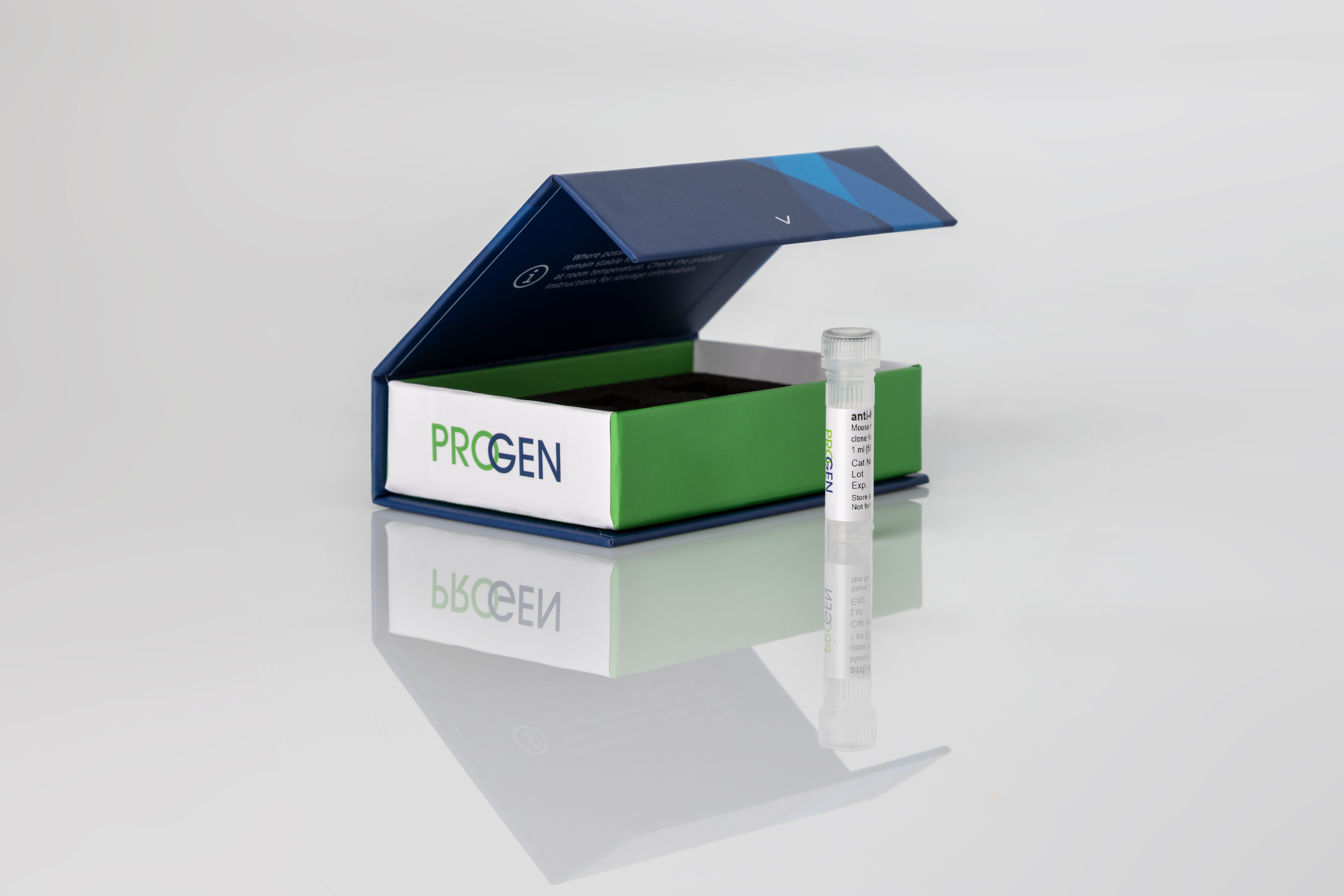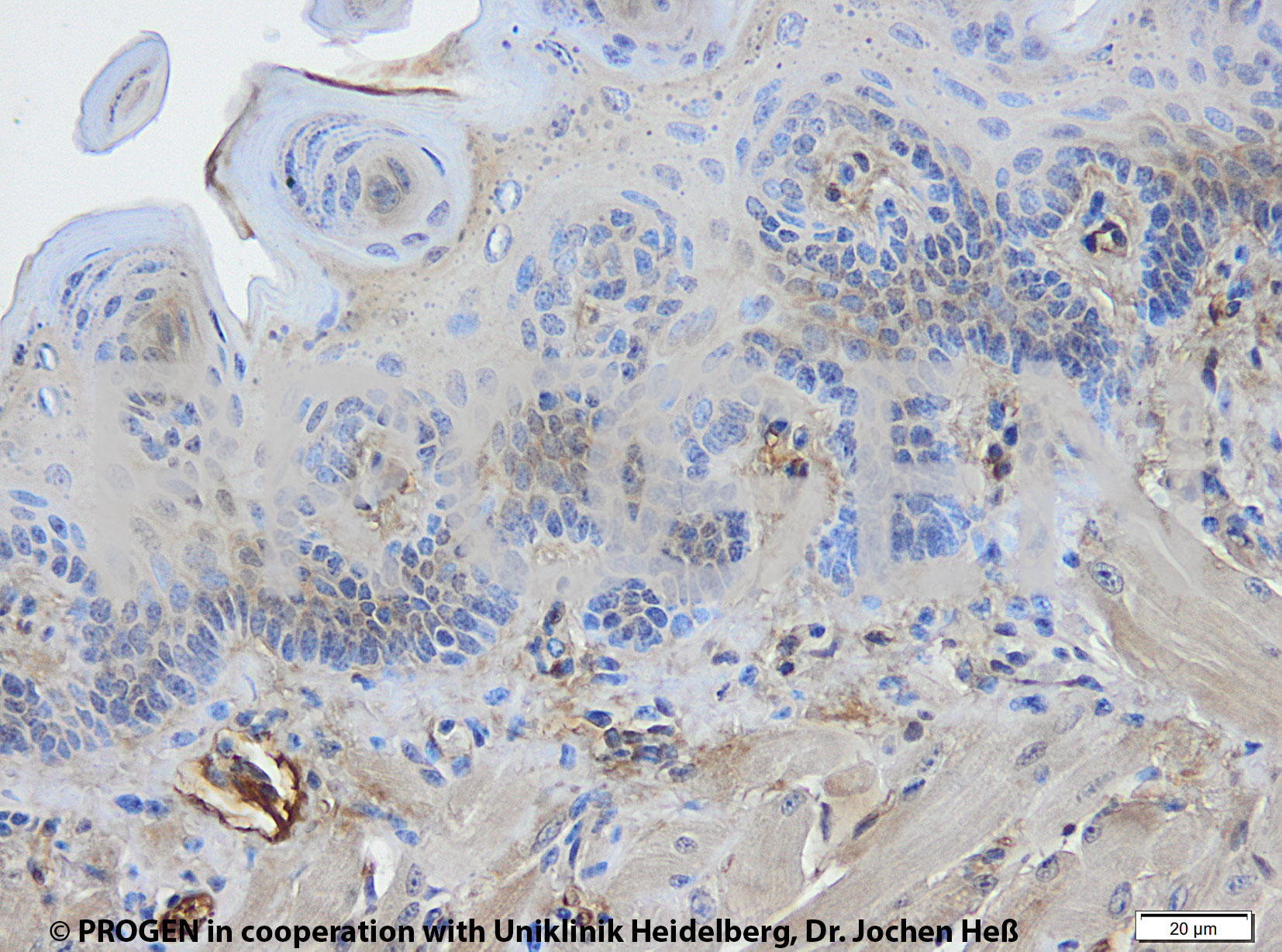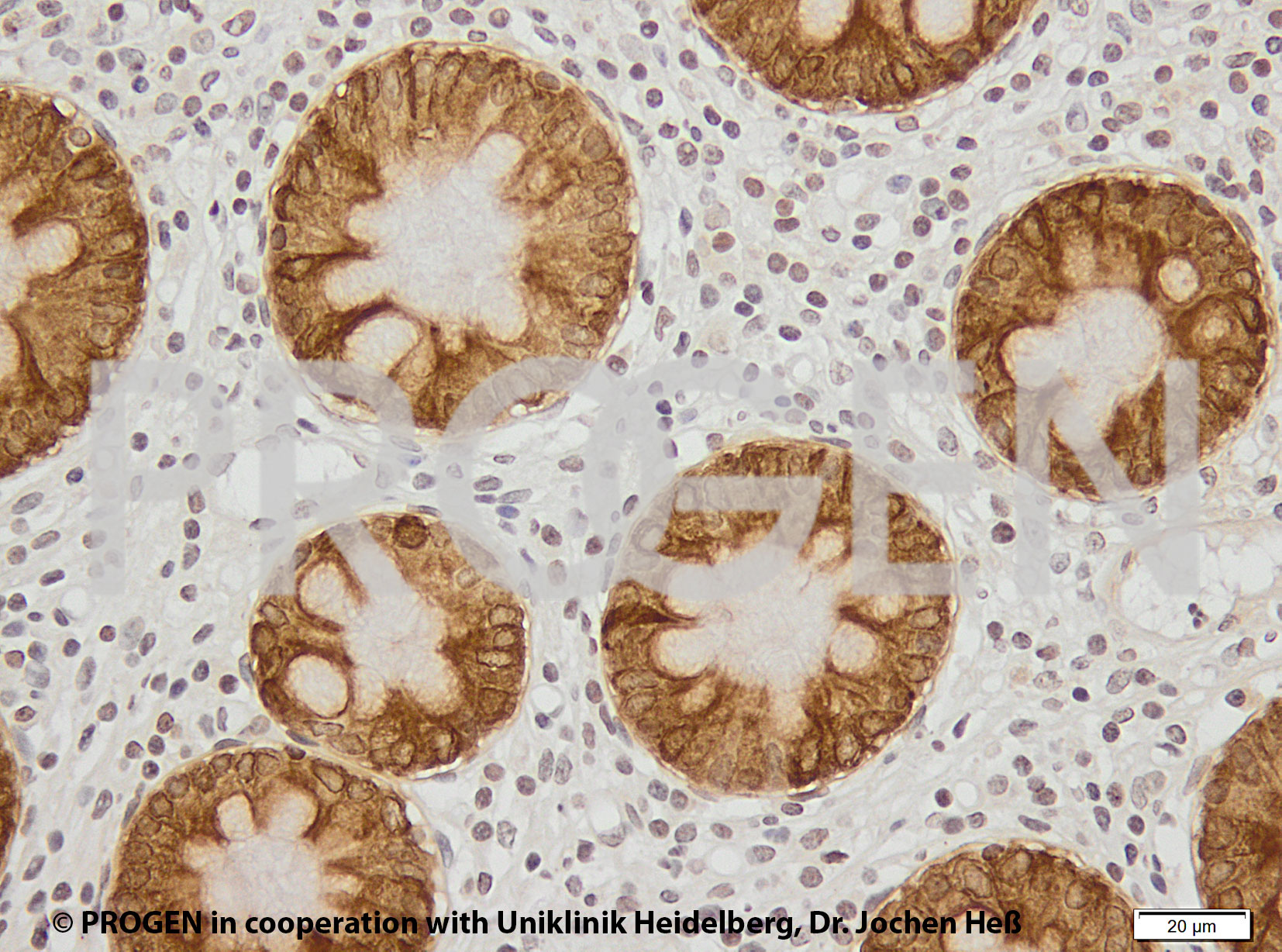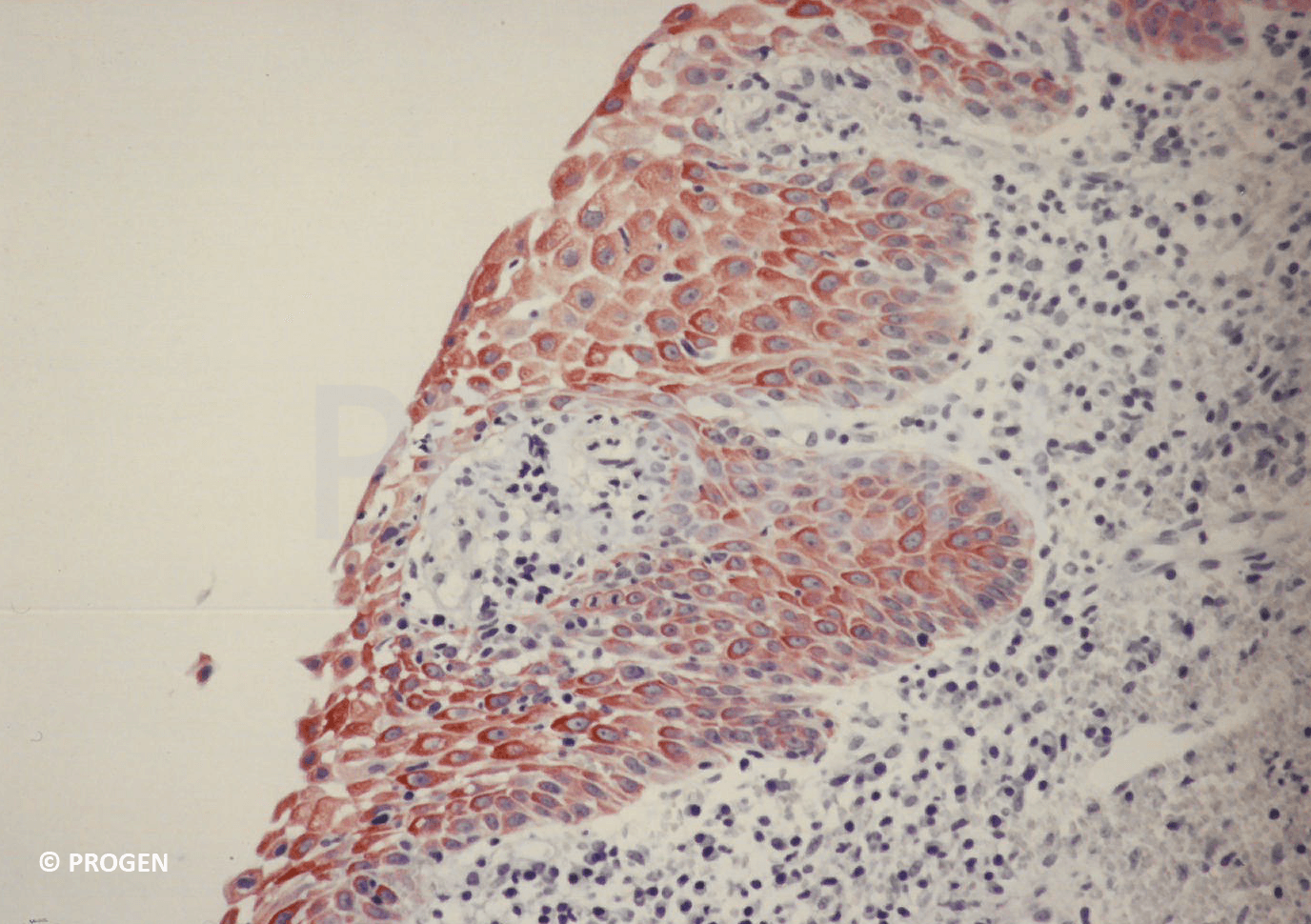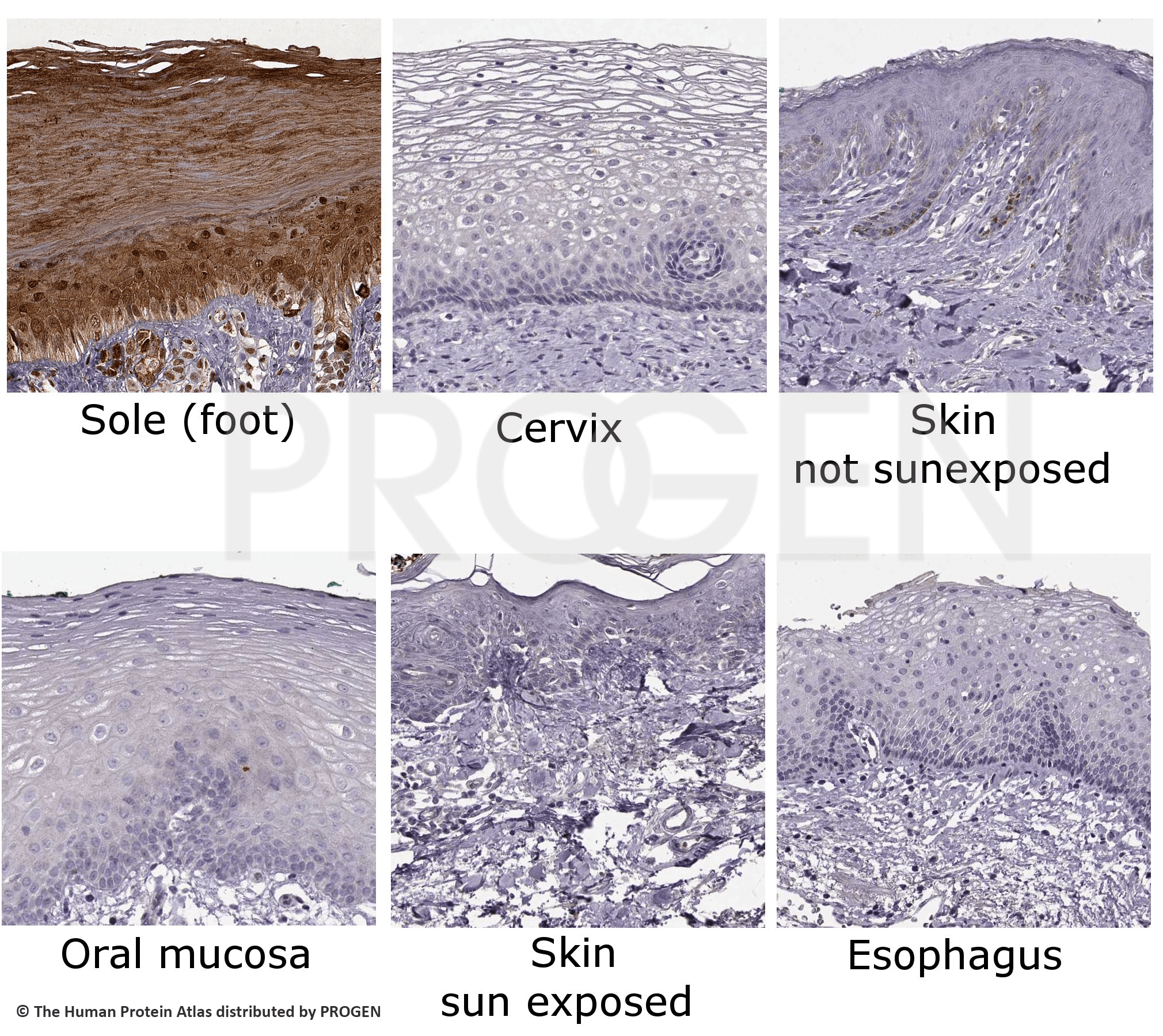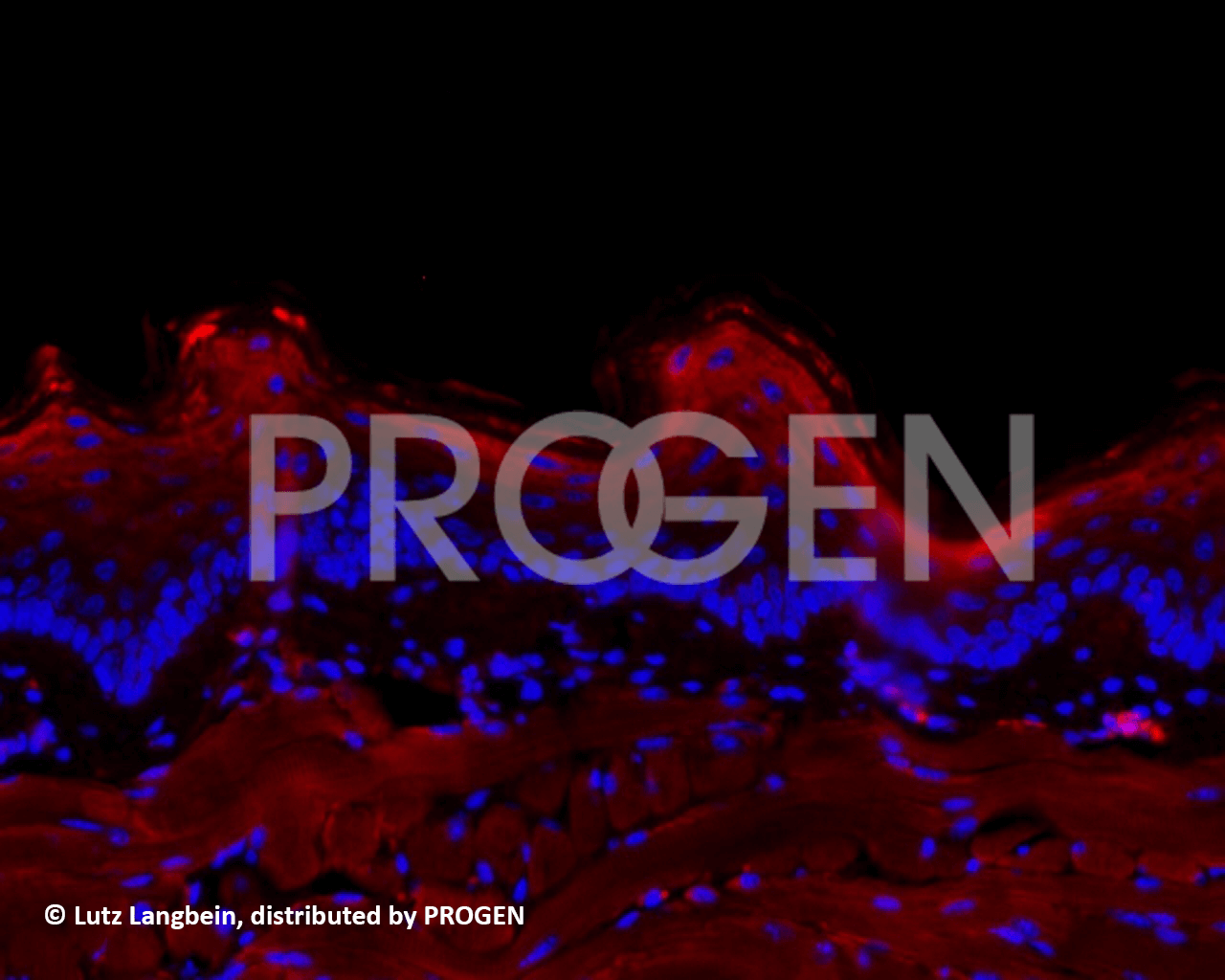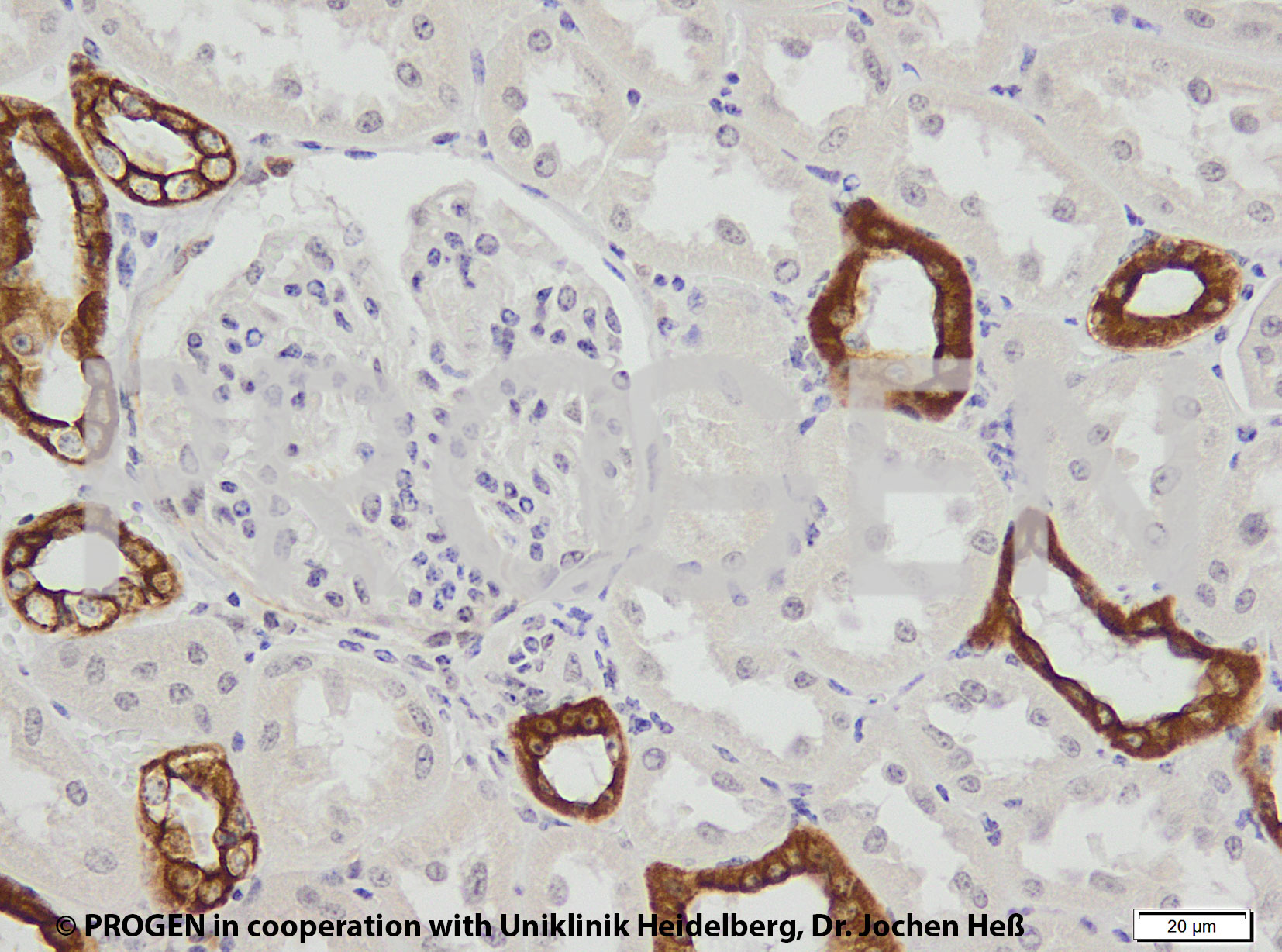anti-Keratin K19 mouse monoclonal, Ks19.2 (Z105.6), liquid, purified
- Purified, liquid
- Mouse monoclonal
- Suitable for ELISA, ICC/IF, IHC and WB
- Reacts with bovine, human, rabbit, rat
- Isotype: IgG2b
Product description
| Quantity | 1 ml (50 µg/ml) |
|---|---|
| Antibody Type | Monoclonal |
| Host | Mouse |
| Isotype | IgG2b |
| Conjugate | Unconjugated |
| Application | ELISA, ICC/IF, IHC, WB |
| Purification | Affinity chromatography |
| Reactivity | Bovine, Human, Rabbit, Rat |
| No reactivity | Chicken, Mouse, Woodchuck, Xenopus |
| Storage | Short term at 2-8°C; long term storage in aliquots at -20°C; avoid freeze/thaw cycles |
| Intended use | Research use only |
| Clone | Ks19.2 (Z105.6)(also published as BM 19.21, MAK 19.21) |
| Immunogen | Keratin K19 of Mr 40 000; from cultured human MCF-7 cells |
| Concentration | 50 µg/ml (50 µg) |
| Formulation | PBS buffer, pH 7.4 with 0.09% sodium azide and 0.5 % BSA |
| UniprotID | P08728 (Bovine), P08727 (Human), Q63279 (Rat) |
| Synonym | Keratin, type I cytoskeletal 19, Cytokeratin-19, CK-19, Keratin-19, K19, KRT19 |
Applications
| Tested applications | Tested dilutions |
|---|---|
| Immunocytochemistry (ICC)/ Immunofluorescence (IF) | Assay dependent |
| Immunohistochemistry (IHC) - frozen | 1:10-1:50 (1-5 µg/ml) |
| Immunohistochemistry (IHC) - paraffin | 1:10-1:500 (0.1-5 µg/ml; microwave treatment recommended) |
| ELISA | Assay dependent |
| Western Blot (WB) | 1:50-1:500 (0.1-1 µg/ml) |
Background
Ks 19.2 represents an excellent marker to discriminate glandular epithelial carcinoma from those of different origin. No reaction with hepatocellular carcinoma! Polypeptide Reacting: Mr 40,000 polypeptide (keratin K19; formerly also designated cytokeratin 19) of human glandular epithelia. The epitope has been localized on aa. 352-368 (VRADSERQNQEYQRLMD) of the alpha-helical fragment.
Tumors specifically detected: all tested adenocarcinoma; cholangio carcinoma of liver; renal cell carcinoma; transitional cell carcinoma of the bladder; ovary carcinoma; squamous cell carcinoma of cervix, bronchus and lung (intermediate type); mesothelioma; carcinoid tumor of bronchus; breast carcinoma; thymoma.
Reactivity on cultured cell lines: MCF-7.
References/Publications (19)
Downloads
Q & A's
Customer Reviews
Login
FAQs
The concentration of purified antibodies is mentioned on the datasheet.
For prediluted antibodies the concentration may vary from lot to lot. The concentration of these antibodies is not mentioned on the datasheet and can be requested at support@progen.com.
The supernatant format contains FCS proteins from cell culture medium supplemented with FCS.
The serum antibodies contain other proteins present in serum.
- Supernatant and supernatant concentrate: This format contains hybridoma cell culture supernatant. The antibody is not purified and the antibody concentration is not determined. The antibody concentration may vary from lot to lot. Therefore we recommend to titrate the optimal concentration for the application used for each new lot.
- Lyophilized, purified: This format contains purified antibody in lyophilized form. The reconstitution of this antibody is described in the datasheet. The buffer composition after reconstitution is also mentioned on the datasheet.
- Liquid, purified: This format contains purified antibody in liquid format. The concentration is mentioned on the datasheet.
- Prediluted, purified: This format contains purified antibody in liquid format. Most antibodies in this format are diluted to be ready-to-use for IHC with standard tissue. But some antibodies of this format need further dilution for IHC. This is mentioned on the datasheet.
Most of our liquid antibodies and reconstituted lyophilized antibodies may be stored for short term storage (up to 3 month) at 2-8°C. For long term storage we recommend to store the antibody at -20°C in aliquots. Please avoid freeze and thaw cycles.
Most of our conjugated antibodies should be stored at 2-8°C.
The individual storage conditions are mentioned on the datasheet.
Positive tissue: outer root sheath of hair follicle, sweat gland epithelium on the foot pads, filiform papillae of tongue.
- Homogenization (e.g. with polytron) of tissue samples in buffer L (140 mM NaCl, 5 mM EDTA, 5 mM EGTA, 10 mM Tris-HCl pH7.6) supplemented with protease inhibitors; use 1 ml buffer for approx. 0.1 g tissue.
- To reduce viscosity by high DNA contents, benzonase treatment can be included (30 min at 37°C).
- Centrifugation for 10 min (max. speed, table top centrifuge).
- Resuspend pellet in "Triton extraction buffer" (buffer L plus 1% Triton X-100) using e.g. a dounce homogenizer.
- Centrifugation for 10 min (max. speed, table top centrifuge).
- Resuspend pellet in "high salt extraction buffer" (buffer L plus 1.5 M KCl) using e.g. a dounce homogenizer.
- Centrifugation for 10 min (max. speed, table top centrifuge).
- Resuspend pellet in "Triton extraction buffer" (buffer L plus 1% Triton X-100) using e.g. a dounce homogenizer.
- Centrifugation for 10 min (max. speed, table top centrifuge).
- Resuspend pellet in Laemmli buffer and boil (5 min) for SDS-PAGE.

